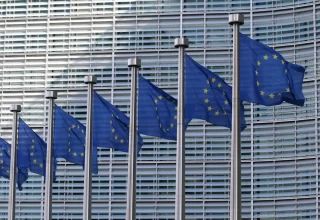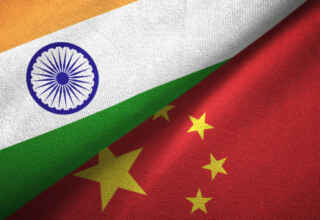
Last week marked a significant milestone as Turkey and Somalia formalized a comprehensive defence and economic cooperation agreement spanning a decade. In this ten-year pact, Turkey has committed not only to safeguarding Somalia’s extensive coastline but also to actively contribute to the reconstruction of its naval forces. A spokesperson from the Turkish Defence Ministry highlighted Turkey’s dedication to assisting Somalia in developing its capacity to combat illegal and irregular activities within its territorial waters. Furthermore, the agreement also seems to be aimed at contributing to the recovery of natural resources in Somalia’s maritime borders.
While the Somali government envisions strengthened capabilities to counter threats like piracy, terrorism, and perceived “foreign interference,” there are dissenting opinions. The main concern relates to the expansive and seemingly unlimited control Turkey could wield in Somalia and ensuing worries about a European nation exerting such influence or military power in the Horn of Africa, a sentiment also shared by many Africans. This especially so considering the agreement coincides with heightened frustration over Ethiopia’s maritime deal with Somaliland, a breakaway region seeking autonomy. According to the agreement, Ethiopia would lease a naval port and a 20km stretch of the Red Sea coastline in Somaliland, which, in return, would receive shares in Ethiopian Airlines and, more significantly, potential official diplomatic recognition from Ethiopia. Obviously, such deal has been declared “void” by Somalia, which considers it a breach of its sovereignty by Ethiopia.
Given the circumstances, the deal concluded between Somalia and Turkey presents potential domestic and international implications. Firstly, the agreement could spark concerns within the Somali population about the influence Turkey would be able to exert in the country and about the potential risk of escalating tensions with Ethiopia. Due to this, President Hassan Sheikh Mohamud tried to reassure the Somali people stressing that the agreement focuses on maritime defence and economic cooperation and that it is not aimed at creating hatred or a feud with another country or government. Nonetheless, its maybe unwanted result may be exactly to heighten tensions with Ethiopia, whose population favours access to the sea and sees Turkey’s presence as a threat. Furthermore, in the context of Ethiopia’s internal conflicts, including those in Tigray, Amhara and Oromia, the perceived threat of Turkey may serve to redirect internal conflict to pursue an external enemy, potentially impacting the delicate balance within Ethiopia’s powerful regions.
The deal could also affect international dynamics. Through it Turkey solidified its position as a major player in Somalia. Although it is true that Turkey has long-been an economic and military partner of Somalia, concerns arise as to the potential regional instability and overshadowing of other international actors that this renewed Turkish influence in Somalia could cause. Recognising the risk of increased tensions ensuing this deal, US diplomats have engage in discussions with representatives of Ethiopia and Somalia with the aim of mediating communication and de-escalating tensions.
The position taken by US representatives is two-folds. Firstly, it was stressed that Ethiopia’s concerns about increased commercial port access should be addressed through talks with the federal government of Somalia and neighbouring states, possibly as part of a regional approach. Secondly, it was stated that the issue of Somaliland’s status should be determined by the people of Somalia, including those in Somaliland, rather than external actors. Thus, the delicate balance between safeguarding legitimate interests and respecting territorial integrity is pivotal for the future of stability in the region.
As much as diplomatic action is urged, it seems that the negotiations led by the African Union and the Intergovernmental Authority on Development (IGAD) may be overlooked especially if the perception that Somalia has outsourced its security responsibility to Turkey solidifies. For this reasons, it would be necessary for Turkey, possibly under pressure by other international actors, to support negotiations rather than relying on hard power.
In conclusion, the Turkey-Somalia deal, occurring in the context of Ethiopia’s maritime agreement with Somaliland, has introduced a new dimension to the intricate geopolitical dynamics in the Horn of Africa. The perception that the deal was aimed at reinforcing security for potential confrontation with Ethiopia might lead to heightened tensions. Furthermore, the influence Turkey can exert in the region thanks to the agreement raises concerns from both regional and international actors. As a result, it would be necessary for the international community to pressure Turkey to refrain from intensifying the tensions between Somalia and Ethiopia and, simultaneously, to encourage diplomatic negotiations between the two countries in an effort to spare the region yet another conflict. Such negotiations would ideally lead to Ethiopia’s quest for sea access to be at least partially addressed whilst separating this question from Somaliland’s status so as to avoid infringing on Somalia’s sovereignty.
By The European Institute for International Law and International Relations













